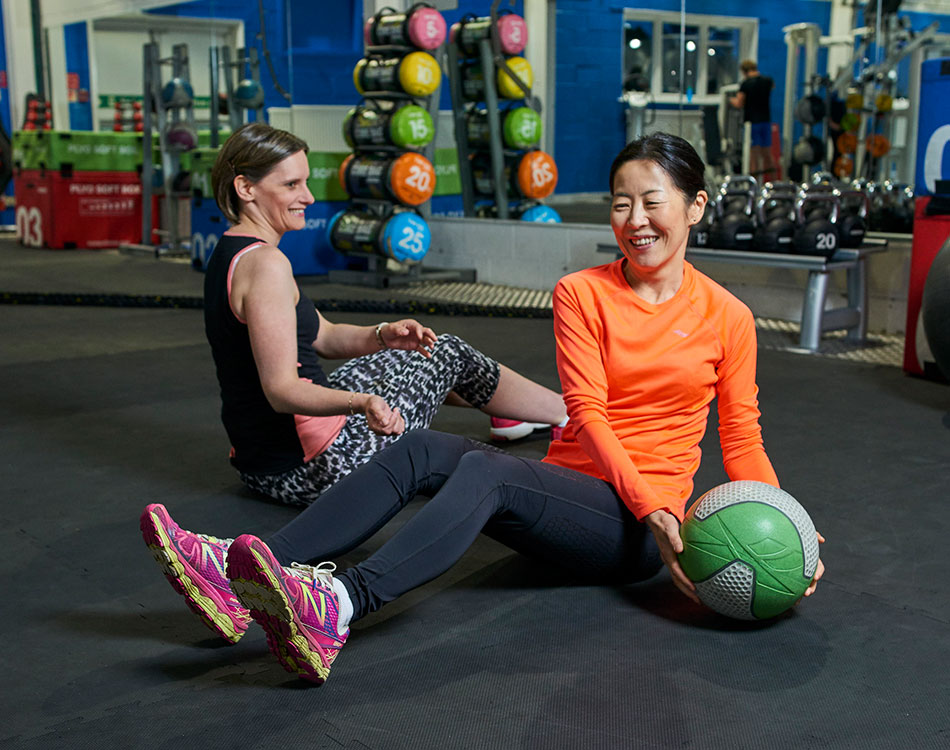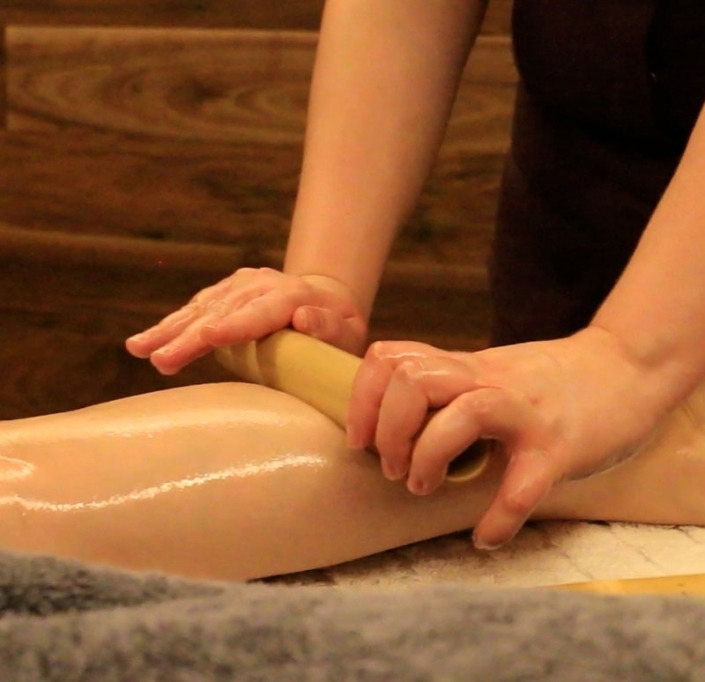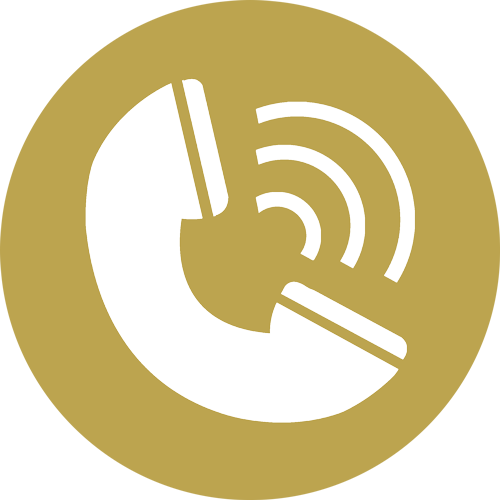Embracing wellness
Navigating menopause with grace and vitality
By Caroline & Elissa, Co-Founders of Mission Menopause
Welcome to a conversation that’s not just necessary but empowering. Menopause, a natural phase in every woman’s life, marks the end of menstrual cycles, typically occurring between the ages of 45-55. It brings with it symptoms that are as varied as they are manageable – from hot flushes and sleep disturbances to mood changes and more. Yet with the right approach, these symptoms can be navigated with grace.
We’re here to guide you through this transition positively.

Understanding Menopause with Compassion and Knowledge
Perimenopause marks the beginning of the menopause transition, often starting in our 40s, characterised by the ovaries producing less oestrogen. This stage can last for several years, typically between 4 and 8. Menopause itself is confirmed after 12 consecutive months without a menstrual period, officially ending the reproductive years, typically around age 51, though symptoms may persist.
Symptoms Across the Stages
Menopausal symptoms vary widely among women but typically include:
- Hot flushes and night sweats: Sudden, intense feelings of heat across the body, often accompanied by sweating and flushing. These can occur at any time and disrupt daily activities and sleep.
- Mood changes: Fluctuations in mood, including irritability, depression, and anxiety, reflecting the hormonal changes occurring within the body.
- Sleep problems: Difficulties in falling asleep, staying asleep, and night sweats, leading to chronic sleep deprivation and its associated risks.
- Vaginal and urinary issues: Decreased vaginal lubrication leading to discomfort during intercourse, along with increased urinary urgency or risk of urinary tract infections.
- Cognitive changes: Experiences of forgetfulness or difficulty concentrating, often described as ‘brain fog.’
- Physical changes: Changes include increased abdominal fat, reduced muscle mass, dry skin, thinning hair, and changes in cholesterol levels, all of which can affect a woman’s physical health and self-image.
Post menopause, the years following menopause see many women experiencing a reduction in symptoms. However, the decrease in oestrogen levels may increase the risk for conditions such as osteoporosis and heart disease. Health and wellness, including diet, exercise, and medical check-ups, become key.

Lifestyle tips for a flourishing menopause journey
Recognising the impact of menopause on the body emphasises the need for a healthy lifestyle to manage symptoms effectively. Embracing nutrition, exercise, stress management, and sleep hygiene can greatly help you to alleviate your symptoms. With the guidance of wellness professionals, you can empower yourself to manage menopause smoothly, enhancing overall well-being and quality of life during this transitional phase.
Sleep: The Foundation of Menopausal Well-being
Sleep, an essential component of our daily lives, becomes even more critical during the menopausal transition. Its impact on health and well-being cannot be overstated, especially as the body navigates the complex hormonal changes of perimenopause and menopause.
During perimenopause, fluctuating levels of oestrogen and progesterone can significantly disrupt sleep patterns. These hormonal changes can lead to night sweats, hot flushes, and insomnia, making it challenging to get a good night’s rest. The decline in oestrogen can also affect the body’s ability to regulate temperature and mood, further complicating sleep.
Improving sleep quality requires a multifaceted approach, particularly during the menopausal transition. Here are some effective strategies:
- Establish a Regular Sleep Schedule: Go to bed and wake up at the same time every day to help regulate your body’s internal clock.
- Create a Restful Environment: Ensure your bedroom is cool, dark, and quiet. Consider using blackout curtains, eye masks, or white noise machines if necessary.
- Limit Exposure to Blue Light: Reduce screen time at least an hour before bedtime. The blue light emitted by phones, tablets, and computers can interfere with your ability to fall asleep.
- Avoid Stimulants: Limit caffeine and alcohol intake, especially in the hours leading up to bedtime, as they can disrupt sleep patterns.
- Stay Cool: Keep your bedroom at a comfortable temperature to help prevent night sweats. Consider using breathable, moisture-wicking bed linens and night wear.
- Embrace Relaxation Techniques: Incorporate relaxation practices such as deep breathing, meditation, or gentle yoga into your evening routine to help signal to your body that it’s time to wind down. The Tepidarium is an ideal space for unwinding and practicing mindfulness.
- Our Dead Sea Salt Therapy Pool is enriched with essential minerals including magnesium. Add DSST for absorption of magnesium. Magnesium helps to produce serotonin, a mood-elevating chemical within the brain that creates a feeling of calm and relaxation.

Nutrition: Nourishing Your Body Through Menopause
During menopause and perimenopause, women may experience changes in weight, energy levels, and the risk of developing certain health conditions such as osteoporosis and heart disease. The fluctuations in oestrogen and progesterone levels can affect metabolism and how the body distributes fat. Consequently, optimising nutrition can help to mitigate these effects, support hormonal balance, and enhance overall health.
By focussing on certain foods and nutrients, you can effectively help address the nutritional needs of menopause:
- Phytoestrogens: Found in foods like soybeans, flaxseeds, and tofu, phytoestrogens can mimic the effects of oestrogen in the body, potentially easing menopausal symptoms.
- Calcium and Vitamin D: Essential for bone health, which becomes a priority as the risk of osteoporosis increases. Dairy products, leafy greens, fortified foods, and sunlight exposure can help meet these needs.
- Omega-3 Fatty Acids: Beneficial for heart health and mood regulation. Sources include fatty fish like salmon, chia seeds, and walnuts.
- Fibre: Important for digestive health and can aid in managing weight. Whole grains, vegetables, fruits, and legumes are excellent sources.
- Antioxidants: Combat oxidative stress and support overall health. Berries, nuts, dark chocolate, and green tea are packed with antioxidants.
- Water: Staying hydrated is key to managing symptoms such as dry skin and aiding in overall bodily functions.
Each woman’s experience of menopause is unique, and dietary needs can vary. Consulting with a nutritionist can provide personalised advice, ensuring your diet is tailored to support your health and well-being during menopause. Adjusting dietary habits can seem daunting, but small, incremental changes can lead to significant improvements in how you feel during this transformative period.

Move More, Feel Better: Exercise For Vitality
Physical activity is a powerful tool for managing menopause and its related symptoms, promoting not only physical health but also mental and emotional well-being. By incorporating regular, varied exercise into your routine, you can navigate the menopausal transition with greater ease and vitality, embracing this new phase of life with strength and positivity.
Not all exercises are created equal, especially when it comes to managing menopause symptoms. The key is finding the right balance and type of exercise that suits your body’s needs during this time:
- Cardiovascular Exercise: Activities like walking, jogging, swimming, and cycling can help manage weight, improve heart health, and elevate mood. Aim for at least 150 minutes of moderate aerobic activity or 75 minutes of vigorous activity each week.
- Strength Training: Incorporating strength training exercises at least two days a week can help maintain muscle mass, support bone health, and boost metabolism.
- Yoga and Pilates: These exercises are excellent for stress reduction, improving flexibility, and enhancing core strength. They also offer the added benefit of mindfulness and relaxation, helping to manage mood swings and sleep issues.
- Balance and Flexibility Exercises: Maintaining balance and flexibility becomes increasingly important as we age, helping to prevent falls and improve overall mobility.
It’s essential to listen to your body and adjust your exercise routine to match your current health, fitness level, and menopausal symptoms.
Nirvana fitness coaches can provide personalised advice and tailor exercise plans that align with your body’s changing needs, to support your health without risking injury or exacerbation of symptoms. Find out more by clicking here.

Stress Less, Embrace Calm
Navigating menopause requires not just physical care but also significant attention to emotional and mental well-being.
The hormonal fluctuations of menopause, particularly the decline in oestrogen, can heighten sensitivity to stress. Oestrogen has a regulatory effect on the brain’s stress response system, and as its levels drop, women may find themselves more prone to stress and its physical and emotional repercussions. This increased stress can, in turn, aggravate menopausal symptoms like hot flushes, sleep disturbances, and mood swings, creating a cycle that impacts well-being.
Therefore, reducing stress is key to managing hormonal balance during menopause.
A Sanctuary for Your Wellness Journey
Nirvana Spa facilities are more than just a place for relaxation; they’re a sanctuary where you can focus on self-care. In particular, Celestial Floatation is renown to help you drift into a state of deep relaxation. As you float freely, your blood pressure, heart rate and cortisol levels will lower. A reduction in ‘stress hormones’ helps you to relax.
For those looking for a more invigorating experience, the dry heat of the sauna encourages perspiration which may help to purge toxins and release feel-good endorphins leaving you with a sense of calm.
Treatment Manager, Nicole, recommends the Cooling Aloe and Mint Body Wrap, this hydrating treatment includes an effective marine scrub and a restressing wrap to soothe your skin.

Let’s Talk About Menopause
It’s time to change the conversation around menopause, from one of silence and endurance to one of openness and empowerment.
Remember Menopause is not just a phase to endure but an opportunity to flourish. With the right lifestyle adjustments, supportive community, and access to trusted information, this period can be one of rejuvenation and empowerment.
We are here to support you with tailored wellness strategies, helping you navigate menopause with grace, vitality, and positivity.
Trusted Information: The Foundation of Your Journey
And finally, in a world awash with information, finding reliable sources is key. Trustworthy websites, support groups, and healthcare professionals specialising in menopause are invaluable resources. Here are some useful resources:
NHS provides an overview of menopause and symptoms, including what you can do, treatment and help and support.
www.nhs.uk/conditions/menopause
Women’s Health Concern is the patient arm of the British Menopause Society and provides a confidential, independent service to advise, inform and reassure women about their gynaecological, sexual and post reproductive health.
The Menopause Charity provides trusted information, education, and support for women.
Mission Menopause provides workplace advice and support including menopause awareness training, coaching and consultancy.
The Balance app – A free menopause support app which can be downloaded on the App Store or at Google Play
Cookie policy | Privacy policy | Accessibility statement | Terms & conditions | Gender pay Gap Information |












